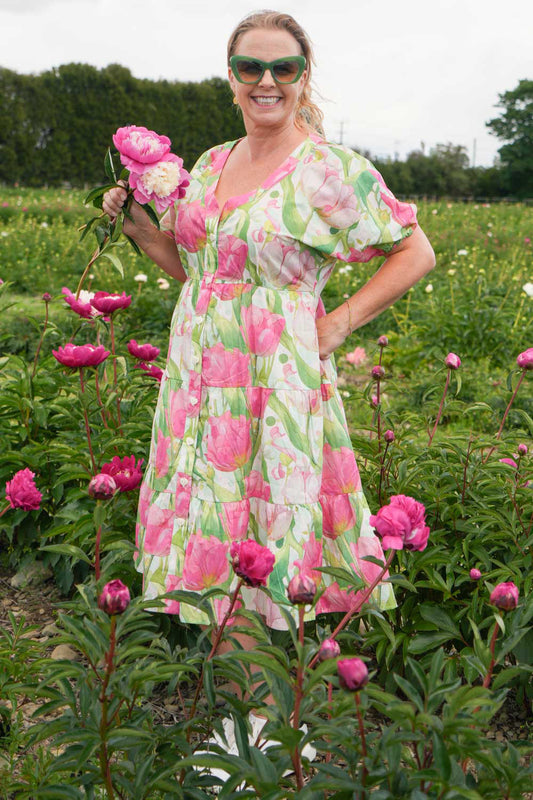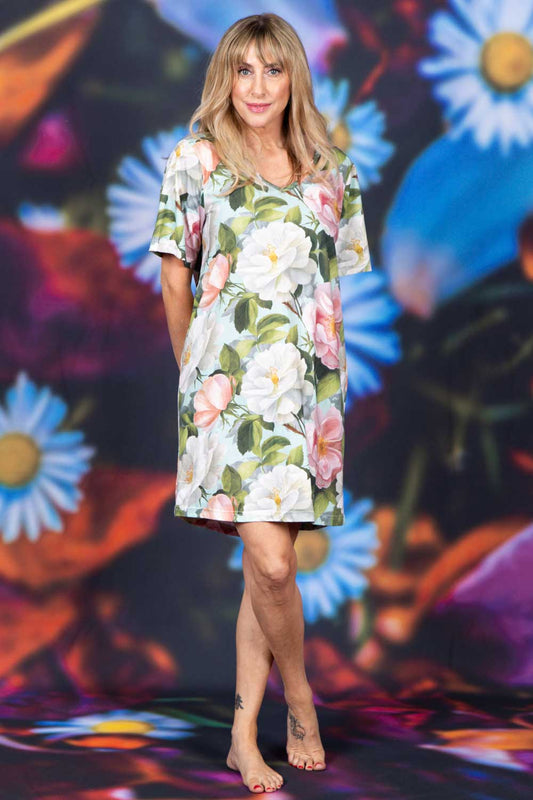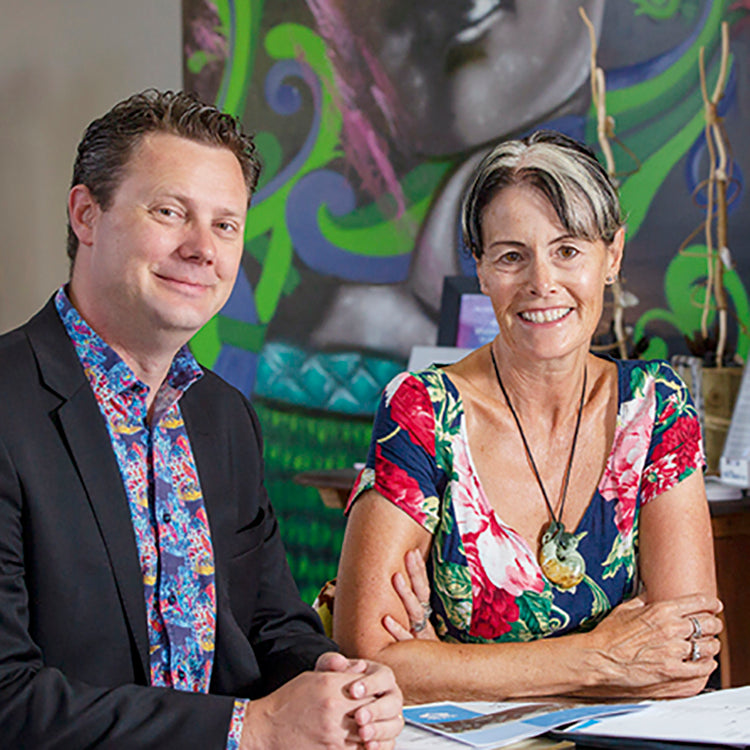
David Hallett, Annah Stretton and Heather Claycomb want to give charities and not-for-profits access to high-quality business support. Photo: Peter Drury
A business-led initiative that will give Waikato charities access to high-quality advice and support launches next month.
The Good Collective, founded by Annah Stretton, represents a first for New Zealand with its strong business lens and comprehensive bureau-style approach.
It will launch on April 11 with the aim of helping not-for-profits and charities build robustness and sustainability.
The Good Collective engages service providers to deliver member organisations with discounted business services. Members can use their services for capability building, crisis management or ongoing business services.
The initiative was born out of Stretton’s involvement in two other social enterprises she has set up through her charitable foundation: RAW, which provides a wrap-around support model for recidivist female offenders, and Kia Puāwai, which builds wellness into charities and not-for-profits in Waikato.
She had been trying to get contacts to help with pro bono work for the newly established Kia Puāwai. Many of them were already assisting with RAW.
“I was out there tapping a lot of my business colleagues on the shoulder,” she says. “I could feel the exhaustion as my emails were bouncing back and forth, and I thought, what happens to charities that don’t have these types of connections?”
That’s when she had her “aha” moment.
“I thought, what we need is a model that facilitates this, that enables not only the service providers to be paid some money for doing this work but also enables charities to have access to people that are highly capable, and deliver the timely outcomes that they need.”
She ran the idea past business contact Heather Claycomb, founder of HMC Communications.
Claycomb immediately saw its value. She says her company gets a lot of calls from people wanting pro bono work. “Of course you want to help, and the more you help the more word gets around and the more people call you, and then you feel bad because you’re saying no.”
It can become an unfulfilling relationship for both sides, she says.
Good Collective chair David Hallett, who is the co-founder of Waikato software specialist Company-X, calls it charity fatigue.
Stretton says her fashion company would often get calls asking for guidance or mentoring, from a range of creatives who said they were struggling. “They’re often at the bottom of a cliff and from my point of view I just thought it would be so good to get these organisations when they first started, because some of their initiatives were great.”
Often they were sizable organisations. She cites Waikato Women’s Refuge, which came to her five years ago when it was struggling financially and felt one way out would be to get media publicity. She was able to help, and that set her on a journey of her own and RAW was born.
Claycomb says her agency also sees organisations who think publicity is all they need to get them out of a hole.
“I just found out about an organisation we helped do that with a couple of years ago and heard they’re back in the same situation again. The Good Collective thing is about creating sustainable organisations,”
she says.
“There’s a very diverse offering we have but we see the main offering as building that capability into charity, so giving more of a business sensibility around the way that charity and not-for-profit approaches its operations,” Stretton says.
That might include encouraging them to look at employing people, to boost their long-term future.
“We know a charity’s not a business but unless they think and act like a business they may struggle to be sustainable,” says Stretton.
Hallett says charities can initially be uncomfortable with that approach, and says he saw some pushback at a public event the Good Collective’s advisory board ran in June to gauge support for the initiative.
Stretton says more than 50 organisations attended the event, which included “incredibly valuable” breakout groups to drill down into what they would like to see delivered.
“It was a really good opportunity just to listen,” Hallett says. “Some were one person bands, some had 10 staff, some were so strapped for cash they didn’t know whether they were going to be sustainable.”
The challenges they heard were around money, but also, he says, people carrying a load that was unsustainable.
Since then the advisory board has become a full governance board, with Stretton as CEO, and has set up a membership agreement and a service provider agreement.
When it launches in April, it will have a range of service providers already on board, offering everything from IT support to legal advice.
One of those to have signed up is accounting firm PKF Hamilton. PKF partner Bernard Lamusse says the Good Collective fits with his firm’s approach to business.
“Our business is not just all about making the money, it’s having that real balance between looking after our people, adding value to our clients, doing something for our community and educating all of those people,” he says.
“Typically we have a very long-term horizon of at least 50 years with a client. We like to see three generations at least and with charities and not-for-profits there’s no reason why we can’t get involved with them for 30 or 40 years.”
The Good Collective intends to play an active role, including vetting and advising both providers and members, while building membership during the first year.
“Part of the membership process enables us to ascertain that there’s a sustainability there that’s worth investing in, so we will do that due diligence in the first instance,” Stretton says.
Claycomb: “The great thing about this model is as a service provider your costs are at least covered. It takes that pressure valve off, and you can get a little bit of money coming in but also give back at the same time.”
Hallett: “This is not an enterprise for service providers to make additional sources of revenue; really it is a charitable angle for them. It’s a vehicle for them to deliver to vetted charities, which means they’re investing in the right places.”
Within the first 12 months the Good Collective will set up a small staff itself in a shared service hub, offering specific support to members likely to include website development, graphic design, social media, bookkeeping support and administration.
“One of the interesting things is sometimes people don’t know exactly what service they do need, so the Good Collective will offer a service just to decipher that a little bit,” Stretton says.
It is also applying for funding to make available to members from 2020. That will see the Good Collective offering a funding round to member organisations for financial support to be spent with the service providers.
Hallett says they are deliberately looking for new sources of funding, such as the Provincial Growth Fund, in order not to diminish the limited pool already available to other, similar organisations.
That concern extends beyond funding applications. Stretton says they are meeting three or four times a year with Community Waikato, Creative Waikato and Sport Waikato to make sure they are not replicating what is already out there.
“They’ve got very different offerings,” she says. “We actually believe that Community Waikato will be a powerful partner.”
Community Waikato CEO Holly Snape points to the limited resources in the not-for-profit sector and echoes the desire not to duplicate services. She says her organisation and the Good Collective have had some “pretty robust” conversations around that and she believes both organisations want to be complementary to each other’s services.
“Our whole end goal is to have a resilient community and social service sector. So where there are those opportunities to work together we are certainly seeking them. We’re having regular meetings with the Good Collective.
“I think we’re all on the same page of wanting to see the sector strengthened by all the work we’re doing.”
The Good Collective is at pains to stress the collaborative nature of its organisation, with Hallett saying everyone on the board has their own involvement in not-for-profits or charities.
“We’re really respectful of those people that are working in that not for profit sector. They have amazing passion and knowledge. It’s a partnership,” Claycomb says.
For now, the Good Collective is sticking with Waikato, but says it is already fielding interest from other parts of the country and looking in future to scale the model through New Zealand.
Stretton: “We’ve set this up because we see how necessary and valuable the work is in the community and we just want to empower and enable that.”














